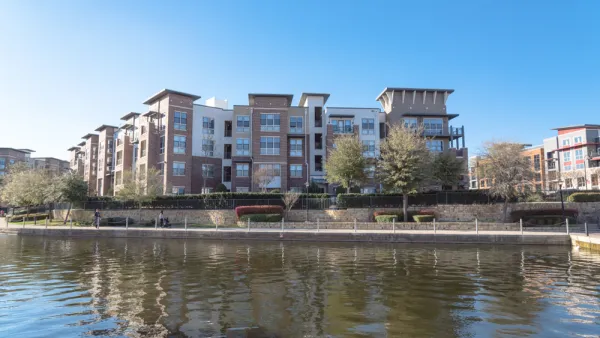Joel Kotkin looks at a new analysis of Census data by Wendell Cox that may upend the "conventional wisdom" that "talented, highly-skilled and highly educated people" are clustering in America's coastal cities.
Using data that depicts the change in the number of people with bachelor's degrees in the 51 largest metropolitan statistical areas in America from 2000-2010, Kotkin concludes that, "In the past decade, the metropolitan areas that have enjoyed the
fastest growth in their college-educated populations have not been the
places known as hip, intellectual hotbeds." Hence, he finds that rather than clustering in select "hip" cities, "brainpower is spreading out."
"In reality," Kotkin argues, "skilled, college-educated people are increasingly now
scattered throughout the country, and often not where you'd expect
them. For example, Charlotte, N.C., Columbus, Ohio, Kansas City and
Atlanta now boast about the same per capita number of college grads as
Portland and Chicago, and have higher per capita concentrations of
grads over the age of 25 than Los Angeles."
It probably isn't shocking to see that the fastest growing cities over the last decade (Las Vegas, Raleigh, Austin, Charlotte, Riverside) also grew by the highest numbers of college grads. Kotkin attributes the growth of college grads in these areas to three key factors that invariably attract any American - "lower home prices, better business climate, job
opportunities."
"Looking ahead," Kotkin concludes, "we can expect this trend to continue, particularly as
the current bulge of millennial graduates mature and start to look for
affordable places to live and work. Regions that maintain strong job
growth, and keep their housing costs down, are likely to keep gaining on
those metropolitan areas celebrated for being the winners of the race
for educated people."
FULL STORY: The U.S. Cities Getting Smarter The Fastest

Analysis: Cybertruck Fatality Rate Far Exceeds That of Ford Pinto
The Tesla Cybertruck was recalled seven times last year.

National Parks Layoffs Will Cause Communities to Lose Billions
Thousands of essential park workers were laid off this week, just before the busy spring break season.

Retro-silient?: America’s First “Eco-burb,” The Woodlands Turns 50
A master-planned community north of Houston offers lessons on green infrastructure and resilient design, but falls short of its founder’s lofty affordability and walkability goals.

Test News Post 1
This is a summary

Analysis: Cybertruck Fatality Rate Far Exceeds That of Ford Pinto
The Tesla Cybertruck was recalled seven times last year.

Test News Headline 46
Test for the image on the front page.
Urban Design for Planners 1: Software Tools
This six-course series explores essential urban design concepts using open source software and equips planners with the tools they need to participate fully in the urban design process.
Planning for Universal Design
Learn the tools for implementing Universal Design in planning regulations.
EMC Planning Group, Inc.
Planetizen
Planetizen
Mpact (formerly Rail~Volution)
Great Falls Development Authority, Inc.
HUDs Office of Policy Development and Research
NYU Wagner Graduate School of Public Service



























